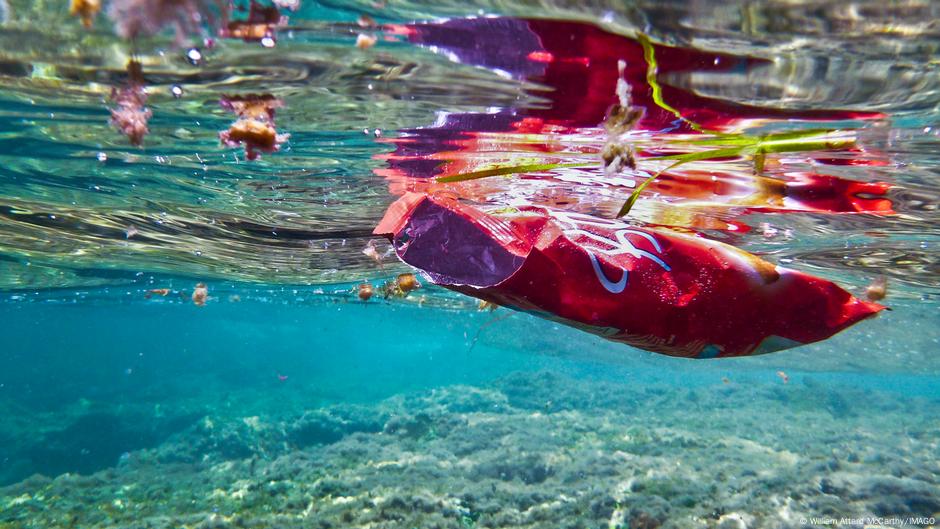
The Mediterranean at a Crossroads
The Mediterranean Sea, once a vibrant and bountiful ecosystem, is now facing an alarming array of environmental challenges. From plastic pollution to overfishing, rising temperatures, and sea-level rise, the coastal nations of North Africa and Europe are witnessing a dramatic transformation of their marine environment. This crisis is not just an ecological issue but a social and economic one that threatens the livelihoods of millions who depend on the sea.
In the Libyan coastal city of Sirte, Mokhtar al-Rammash, a seasoned fisherman, prepares his worn-out plastic boat for another day on the water. As he untangles his frayed nets, he points to the polluted surface of the sea. “These nets now catch only plastic,” he says. “It feels like we're cleaning the sea instead of earning a living from it.” For al-Rammash, the problem is multifaceted. Plastic waste, which enters the Mediterranean at a staggering rate of 730 tons per day, is just one of many concerns. Industrial trawlers, he explains, are sweeping the waters clean by catching even the smallest, juvenile fish, leaving little for local fishermen.
Additionally, sewage from nearby towns near Tripoli is poisoning fish and sponge populations, while coastal reclamation projects are disrupting breeding grounds for various species. Al-Rammash laments that despite Libya’s long coastline, the country now imports fish from abroad. He and other fishermen hope the Libyan Environment Ministry will take action to protect the sea, but so far, their appeals have gone unanswered.
Shared Struggles Along the Coast
Along the coast near Alexandria, Egypt, Haj Abdel Nabi, a 60-year-old fisherman, recalls a time when the sea was abundant. “In the past, we used to come back with 100 kilograms of fish, but today we get only 10 and sometimes, we return with nothing at all,” he says. Like al-Rammash, he blames industrial trawlers for the decline, as a single vessel hauls in more fish than all the local fishermen combined. He has also raised his concerns with local authorities, but no response has been received.
Environmental reports from Algeria highlight similar issues, showing a depletion of key species such as pilchard, which is vital to the country's fishing industry. Algerian authorities have reported the illegal capture of 1,300 tons of sardine seeds annually, which are juvenile fish under 11 centimeters in length. Scientists warn that this practice disrupts marine ecosystems and undermines fish populations.
Solutions and Global Efforts
As local fishermen face these challenges, Egypt has introduced a national plan to improve its coastal environment. The initiative, announced at a conference in July, includes restoring two coastal lakes and building about 70 kilometers of shoreline protection through sand dune dikes. The plan also aims to reduce plastic use by implementing extended producer responsibility, which would impose fees on manufacturers and importers of plastic bags.
Environment Minister Yasmine Fouad has also announced initiatives to support fishermen by involving them in marine waste collection and recycling, as well as monitoring water quality for pollution. “Protecting the Mediterranean is no longer an environmental choice. It's a social and economic necessity,” she said.
Climate change is also playing a significant role in the degradation of the Mediterranean. Scientific studies show that oceans have absorbed 90% of the excess heat generated by human activity since the Industrial Revolution, placing additional stress on fragile marine ecosystems. Rising temperatures, declining rainfall, and sea-level rise are among the factors impacting the Mediterranean Sea.
Global Commitments and Local Skepticism
Algeria recently launched a project to digitize fishing activity monitoring and connect its ports to electronic tracking systems in cooperation with the Union for the Mediterranean. In June, 55 countries signed the High Seas Treaty, aiming to protect 30% of the world's oceans by 2030. This treaty will create protected areas and regulate activities such as fishing, shipping, and deep-sea mining. However, it requires ratification by 60 countries before coming into effect, which could happen by the end of the year.
June also saw 170 countries gather in France to announce the Nice Ocean Action Plan. This initiative calls for involving fishermen in environmental data collection, banning deep-sea fishing in fragile ecosystems, and supporting blue economy projects as a path to sustainable development.
European countries have pledged €1 billion (about $1.2 billion) in ocean protection initiatives over the coming years, including support for countries in the Global South, stricter marine conservation, and advanced pollution monitoring in the Mediterranean.
Despite these efforts, many local fishermen remain skeptical. Samir Sheikh al-Zaghnani, a former Tunisian captain and independent environmental activist, told zaia news, “It's hard to believe when some of the biggest funders are also the world's worst polluters.”
Fishermen like al-Rammash hope to be more directly involved in protecting the waters around them. “We know the sea, and we can protect it, but we don't have the tools,” he said. “If they keep giving us promises while giving others the nets, there'll be nothing left for us.”
